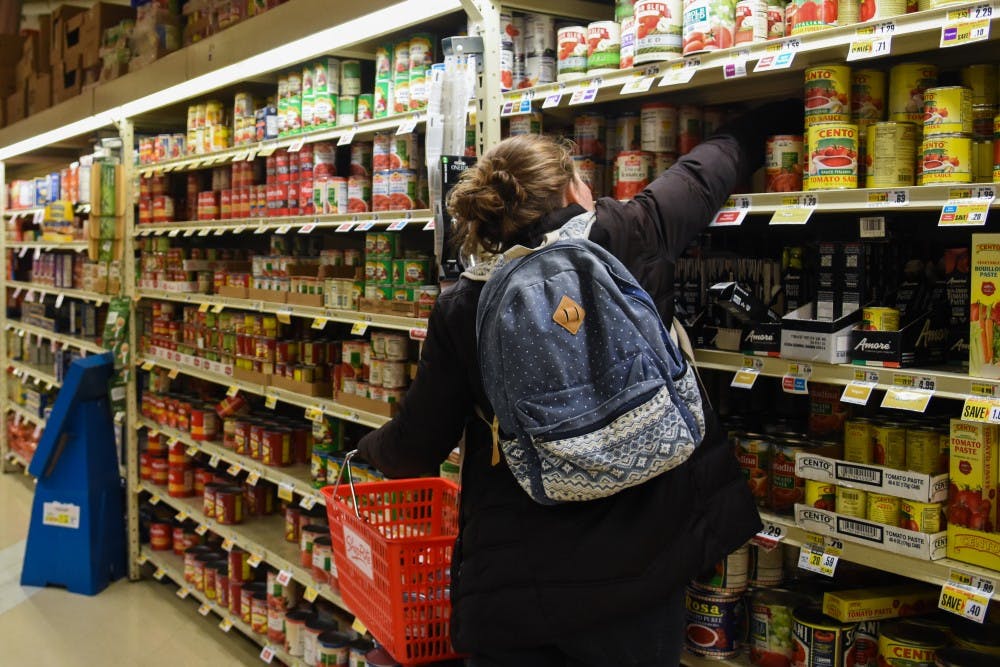This winter break, “highly-aided” students staying at Penn will receive reloadable debit cards to help pay for meals.
Eligible students will receive $20 every day they are on campus from Dec. 21 to Jan. 1. For the remaining 14 days of break, students will have limited access to retail dining options. This system is a continuation of the meal program offered by Student Registration and Financial Services during Thanksgiving break.
Nursing junior Isis Trotman said this meal program is an “absolute step up” from last year’s program, which allowed eligible students to pick up a maximum of two free meals a day from the Sheraton Hotel at 35th and Chestnut streets.
Students staying on campus must relocate to one of the high rises, which are the only college houses open during winter break other than Sansom Place East. Trotman, who participated in the program last winter break, said she had limited access to microwaves in the high rises to reheat food last year. She also noted that the portion sizes were small.
Students also said it was inconvenient to walk to the Sheraton in cold winter temperatures.
“One of my friends said he was grateful that they were giving him food but then it was really cold sometimes and he couldn’t go and get the food,” College sophomore Angela Kumirai said.
Kumirai, who will be participating in the program for the first time this break, said she thinks it will give students more flexibility in choosing their food options. Trotman agreed and said the program will especially help students with dietary restrictions.
The program changes were implemented after SRFS received feedback from the student-led Student Financial Services Advisory Board, Division of Finance Communications Director Paul Richards said.
Eligible students will receive $20 every day they are on campus from Dec. 21 to Jan. 1.
Richards added that although this year's winter break is a week longer, the program will run for the same amount of time in prior years because it is too expensive to administer for the entire break.
”The feedback we got was that of course it would always be nice to be able to do additional days,” Richards said. “We’re certainly aware and it will be part of future conversations."
Richards said Penn is, however, "providing an amount of funding that we are able to provide."
Trotman said when the program ended during winter break last year, she began going to the Greenfield Intercultural Center for meals, which houses a donations-based food pantry. She said she would not have known it was an option if she did not hear through word of mouth.
“This year I think that that would be something that could be better advertised is that when this ends, when you have run out of your money, this option will be made available at this date," Trotman said.
Eligible students will receive $20 every day they are on campus from Dec. 21 to Jan. 1.









